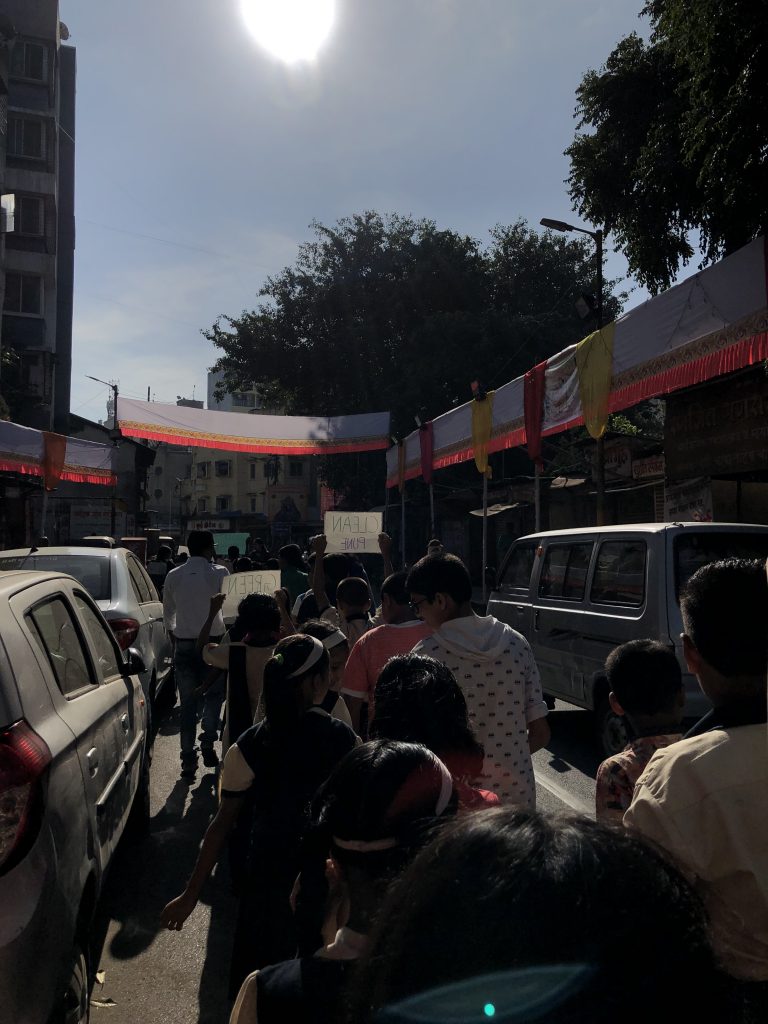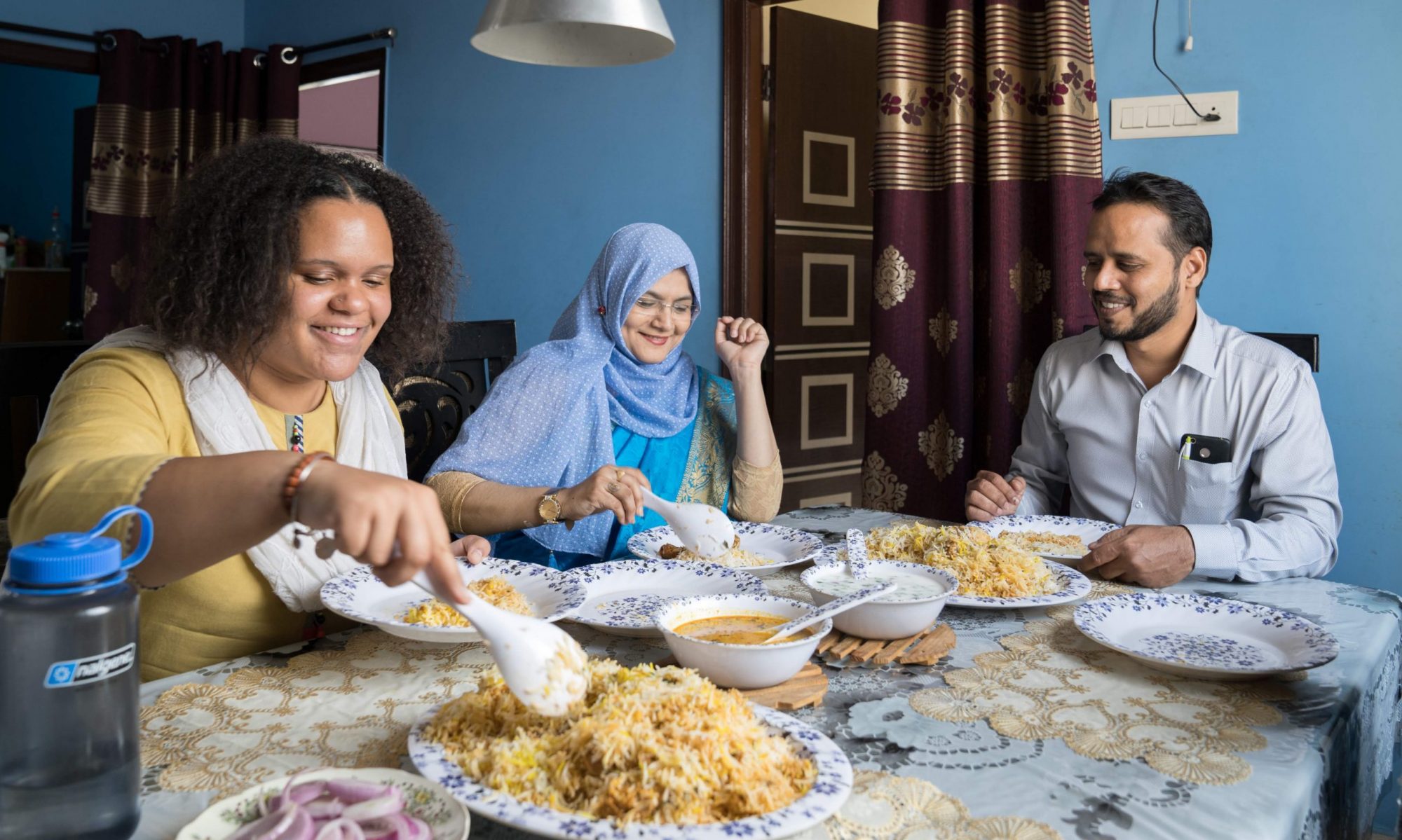by Alex, Tufts 1+4 Participant
The Indus Valley Civilization and the fierce Mughals have pulled me to India. In high school, I consistently found myself being drawn into my world history textbook every time India was mentioned. I particularly enjoyed learning about Mahatma Gandhi and admired how instead of using force, he had inspired Indians to liberate themselves from the British colonialists using non-violence. Later on, this same philosophy would be used to spark freedom movements across the world, from the end of the Apartheid to the Civil Rights Movement. The earth was a better place because Gandhi had walked it.
Due to my love for Indian history, I was excited to find out October 2nd, Gandhi’s birthday, was a national holiday known as Gandhi Jayanti Day. Since government schools spend the day commemorating him, I would luckily be able to celebrate his 150th birthday alongside my students.
At school that morning, teachers handed out posters with slogans such as “Reduce, Reuse, Recycle” and “Clean and Green is Our Dream” to our students, directing them to form a line outside of the school building. Excited, I quickly joined them, and we walked around our school’s neighborhood, chanting “Clean Pune, Green Pune,” alongside some of the neighboring schools. Many people stopped on the street to cheer us on or stare blankly at the commotion. After an hour, we returned to school and sang happy birthday to a picture of Gandhi while eating sweets. My kids were smiling, and I was happy that by raising awareness on pollution, something Gandhi would have strong opinions on, we had done something meaningful. Participating in peaceful protests meant keeping Gandhi’s legacy alive.
Energized by the morning’s events, I didn’t want the celebrations to end after I got home. On Martin Luther King Jr. Day, an American holiday similarly celebrating a man who devoted his life fighting for equality, my family and I read from some of his works. I was especially surprised that my talkative host father wasn’t making a bigger deal of the holiday. When I approached him about it, he looked me in the eye and told me he believed, to some extent, that Gandhi had left a mess for India. The shock evident on my face, he explained that Gandhi consented to the partition of Pakistan and India. If Gandhi had opposed more vocally, which he had the power to do, my host father and many others think the issues involving Pakistan and India would be lessened. He continued by saying that Gandhi often receives all the credit for independence, but the battle he began in the early 1900s wasn’t over until 1947. In reality, victory came because Britain was weak after both world wars and could not afford to fight for India.
Although I had only known my host father for less than a month, I cared greatly about his opinions. I enjoyed learning from him during our many conversations about politics and values. While initially confused, I later realized that this conversation with my host father broadened my views about a man whom I had been groomed to treat as an untouchable figure. They contrasted a morning solely full of festivities. As a result, Gandhi Jayanti Day forced me to challenge my preconceived assumptions. I had been comfortable with my knowledge of India’s fight for freedom from school and my own research that I hadn’t opened myself up enough to hearing more from locals. While I still admire Gandhi in many ways, I have taken the initiative to learn more this year by questioning in order to better immerse myself.

